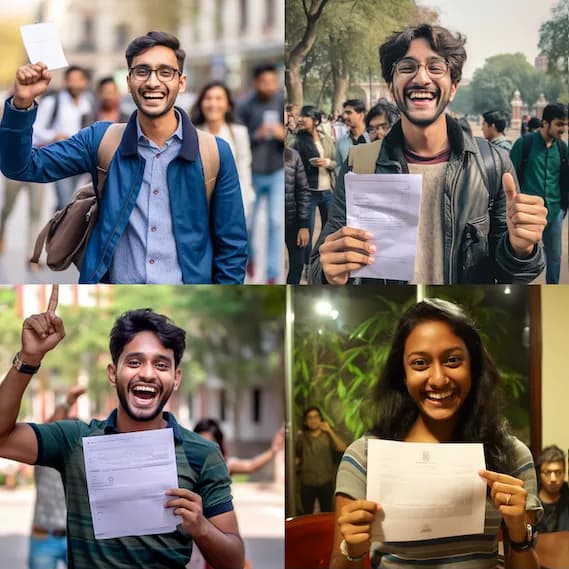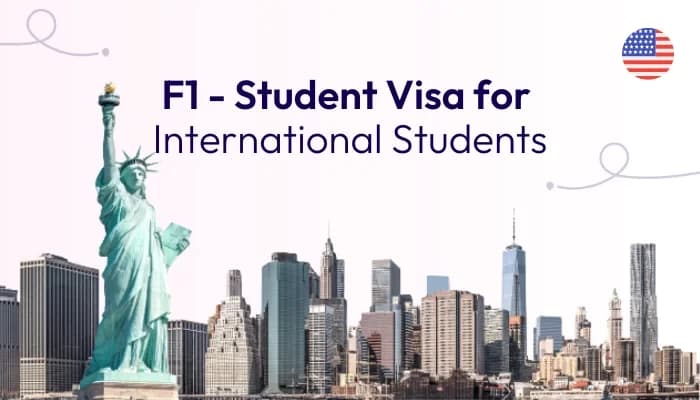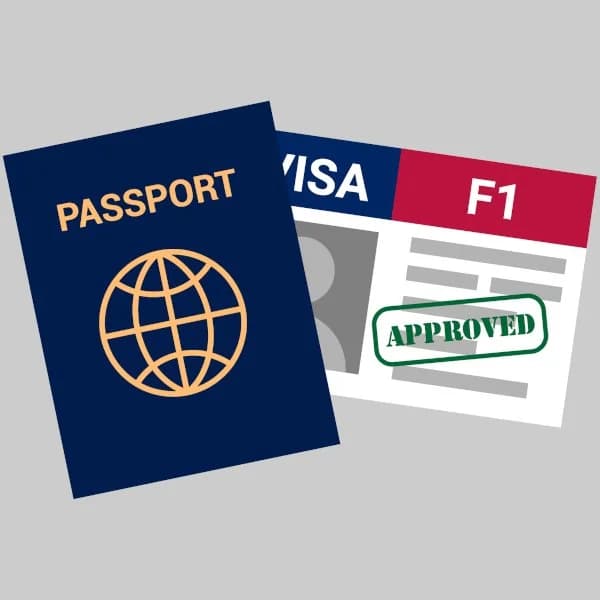F1 Visa Interview: What are your strong ties to your country?
Table of Contents

Key Highlights
- Understand why the interviewer asks about your ties to your home country to ensure you have reasons to return after your studies.
- Identify your ties, such as family relationships, property ownership, future employment opportunities, involvement in a family business, or cultural and community ties.
- Articulate your ties effectively with specific, honest, and concise examples.
- Support your statements with evidence, like job offer letters, property documents, or family photos.
- Prepare for potential counter-questions and think ahead about potential queries.
Introduction
Are you gearing up for your F1 visa interview and grappling with how to convincingly talk about your strong ties to your home country? You're not alone! This is a crucial part of the interview, often causing sleepless nights for many aspiring international students. But fret not! I’m here to guide you through this with a conversational, easy-to-understand approach, spiced up with examples and a touch of humor. Let's dive in!
Step-By-Step Guide
Step 1: Understanding the 'Why' Behind the Question
Starting on this journey, it’s essential to understand why the interviewer asks about your ties to your home country. Essentially, they want to ensure that you have strong reasons to return home after your studies. This is pivotal in securing your F1 visa.
Example: Think of it like a boomerang; the interviewer wants to know that no matter how far you go, there's something significant that'll bring you back home.
Step 2: Identifying Your Ties
Identifying your ties involves reflecting on aspects of your life that anchor you to your home country. These could range from family commitments to economic prospects. Each tie acts as a compelling reason for your return after completing your studies.
List of Possible Ties:
-
Family Relationships:
The presence of immediate or extended family members, like parents or siblings, with whom you have strong emotional bonds.
Example: "My parents and younger siblings live in our ancestral home, and I'm deeply rooted in our family traditions."
-
Property Ownership or Involvement:
Owning property or being involved in managing family properties or estates.
Example: "I co-own a house with my parents, and I'm expected to take over its management."
-
Future Employment Opportunities:
Job offers or clear career paths available in your home country that relate to your field of study.
Example: "A leading tech firm in my city has expressed interest in hiring me post-graduation due to my specialized skills."
-
Involvement in a Family Business:
A role or future commitment in a family-owned business.
Example: "I'm slated to join our family business, which has been a cornerstone of our community for generations."
-
Cultural or Community Ties:
Deep involvement in community activities, cultural practices, or local organizations.
Example: "I'm an active member of a local charity group, and our community work is something I'm passionate about."
Step 3: Articulating Your Ties Effectively
Now, it’s showtime! How you communicate your ties is as important as the ties themselves. Be specific, honest, and concise. Avoid vague statements. The more concrete your examples, the better.
Example: Rather than saying, "I have family back home," you could say, "I am the primary caregiver for my younger sister, and we have a family business that I plan to join post-studies."
Step 4: Supporting Your Statements with Evidence
Back up your claims with evidence. This could be a job offer letter, property documents, or family photos. These items add credibility to your story.
Example: Think of it as a chef presenting a dish; the proof is the garnish that makes the dish (your story) irresistible and authentic.
Step 5: Preparing for Potential Counter-Questions
Be prepared for follow-up questions. The interviewer might probe deeper into your answers, so think ahead about potential queries and how you can respond confidently.
Example: It’s like playing chess; anticipate the interviewer's moves and have your responses ready. If you mention a family business, be ready to explain what it does and your role in it.
Sample Answers:
Sample Answer 1:
"My primary ties to my home country are my close-knit family and property commitments. I live with my parents and two younger siblings in our ancestral home, which we collectively manage. Our deep family bonds and shared responsibilities in maintaining our property are significant reasons for my return after completing my studies in the U.S."
Reasoning: This answer is strong because it combines personal (family) and material (property) ties, presenting a clear picture of significant responsibilities and emotional connections. It demonstrates the applicant's deep-rooted reasons to return, which are both relatable and tangible.
Sample Answer 2:
"I have a dual commitment that ties me to my home country. First, I have a pre-arranged role in our family business, a well-established enterprise in our community, which I'm set to lead in the technology department. Second, the specialized skills I'll gain from my studies in the U.S. are in high demand in my country, and I've already been approached by local tech firms for potential employment upon my return."
Reasoning: This response is compelling as it highlights professional commitments both in the family business and potential future employment. It shows a planned career path reliant on skills acquired abroad, reinforcing the temporary nature of the applicant's stay in the U.S. and a clear intent to return.
Sample Answer 3:
"My strong ties to my home country are rooted in my community involvement and educational aspirations. I'm actively engaged in local environmental initiatives, particularly in promoting sustainable living practices. Additionally, my long-term goal is to contribute to our educational system by introducing innovative teaching methods inspired by my studies abroad. These commitments firmly anchor me to my home country and are central to my plans post-graduation."
Reasoning: This answer effectively showcases the applicant's dedication to community and educational development in their home country. It reflects a strong sense of purpose and commitment to applying the knowledge gained abroad for significant local impact, underscoring a strong motivation to return.
Frequently Asked questions
-
What constitutes 'strong ties' to my home country for the F1 Visa interview?
Strong ties are factors that indicate your intention to return to your home country after your studies in the U.S. These can include family relationships, job offers, property, investments, community involvement, or any significant commitments that require your presence in your home country.
-
How can I prove my ties to my home country during the interview?
You can prove your ties by providing concrete examples and, where possible, documentary evidence. This may include property deeds, letters from potential employers, evidence of family responsibilities, or records of your involvement in community or social organizations.
-
Are family ties sufficient to demonstrate my intention to return home?
While family ties are important and often considered strong ties, it's beneficial to present a combination of ties. These might include professional, educational, or economic ties, which collectively make a more convincing case.
-
How important is it to have a job offer in my home country for the F1 Visa?
A job offer in your home country can significantly strengthen your application, as it serves as a strong incentive for you to return. However, it's not mandatory. Other ties can also effectively demonstrate your intention to return.
-
Can involvement in a family business be considered a strong tie?
Yes, involvement in a family business is often seen as a strong tie. It indicates your commitment to return and contribute to the family enterprise, showing a clear reason for not remaining in the U.S. after your studies.
Conclusion
Remember, the F1 visa interview is not just a formality; it’s a critical step in your journey to studying abroad. By effectively communicating your strong ties to your home country, you demonstrate responsibility and foresight. Equip yourself with these steps, practice, and walk into that interview with confidence. Your adventure awaits, and this is just the beginning!
Good luck, and remember, it’s not just about answering questions; it’s about sharing your story and dreams!
Have Questions About This Topic?
Join our community to get personalized advice and share experiences with others going through similar visa processes.




